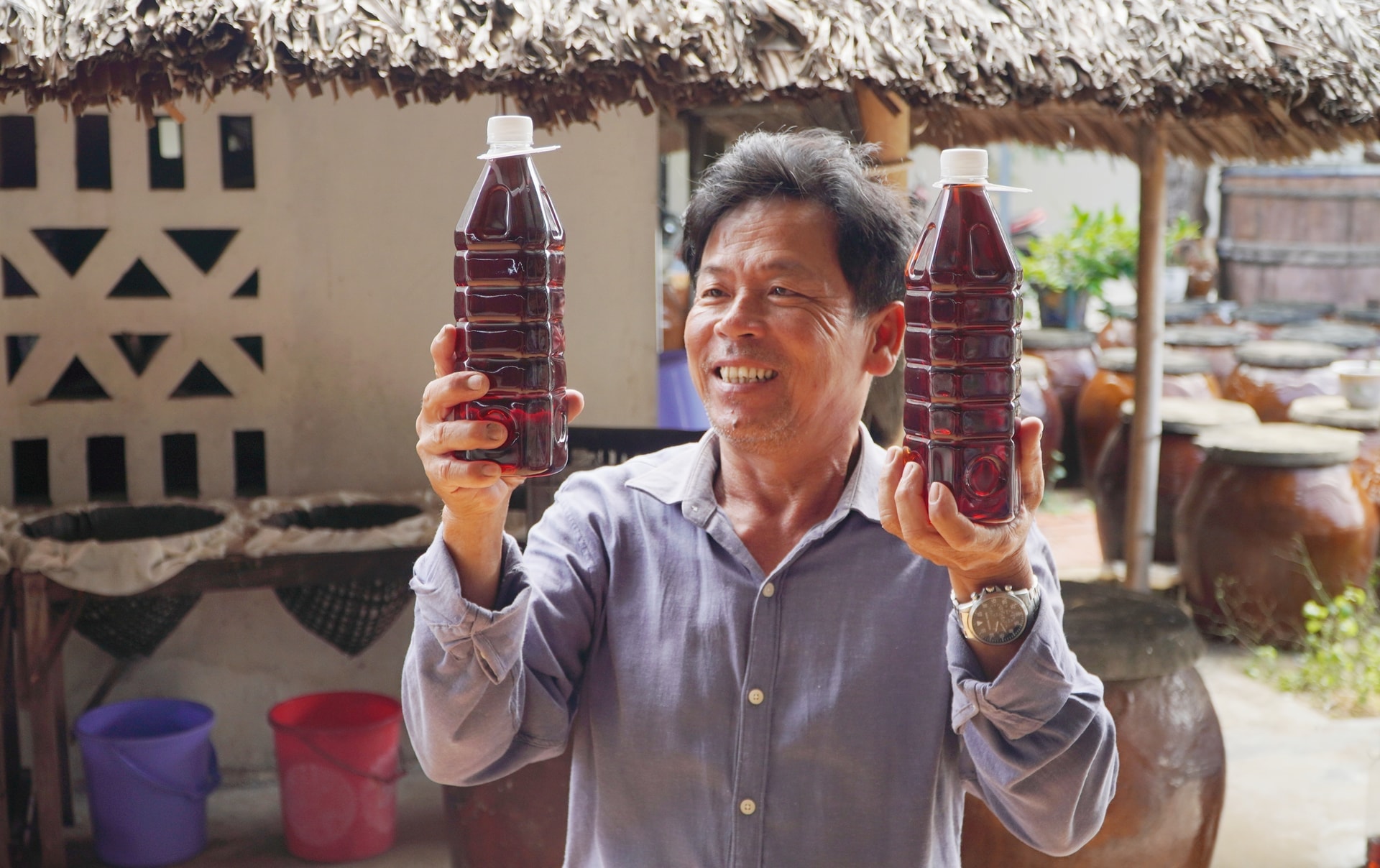DNO - In the context of increasingly demanding market standards, the Cua Khe traditional craft village of making fish sauce in Thang An Commune has pioneered the application of new technology to enhance product quality while still preserving authentic production methods.

With more than two decades of experience in the fish sauce making, Mr. Ha Van Hoa, Director of the Hai Hien Fish Sauce Cooperative located in Duy Ha Village, Thang An Commune knows each step of the traditional fermentation method.
However, he also soon realizes the shortcomings of manual production methods in ensuring requirements on hygiene, productivity and product quality.
In September 2023, under a cooperation programme between the Departments of Science and Technology of former Quang Nam Province and Ha Tinh Province, a technology model applying solar energy and an automated stirring system was piloted in the Cua Khe craft village.
The Hai Hien Fish Sauce Cooperative in Cua Khe craft village was among the pioneers. With a total investment of VND 2.6 billion, including over VND 800 million funded by the state budget, the Cooperative installed 20 composite fermentation tanks, a heat-accumulating glass roof system, and automated stirring equipment.

According to Mr. Ha Van Hoa, the new production process operates in a fully-enclosed environment, minimizing exposure to outside elements. Solar heat and periodic stirring create ideal conditions for decomposing protein in anchovies.
After two experimental batches with a weight of 80 tonnes of anchovies, the Cooperative collects 96,000 liters of fish sauce essence, double the yield compared to the traditional method.
The finished fish sauce is clear, fragrant, high in amino acid and free of residue. Notably, the production process no longer has flies, bacterial contamination or nutrient loss caused by evaporation.
As a person directly involved in designing the solar-powered automated stirring system, Mr. Nguyen Chinh Truong, an officer of the Center for Science, Technology and Digital Transformation under the Ha Tinh Provincial Department of Science and Technology - the unit that successfully researched and applied this new technique, affirmed that the conversion to a closed production process did not lose the traditional identity.
On the contrary, it helped enhance product quality, stabilize productivity and meet strict standards on food hygiene and safety in modern consumption trends, he emphasized.